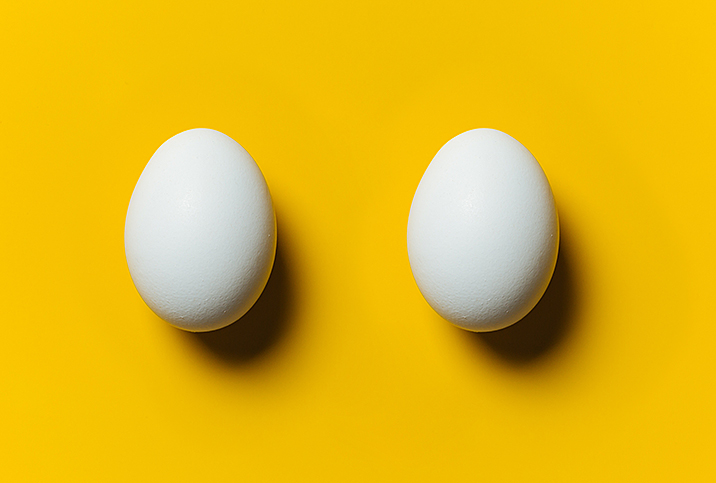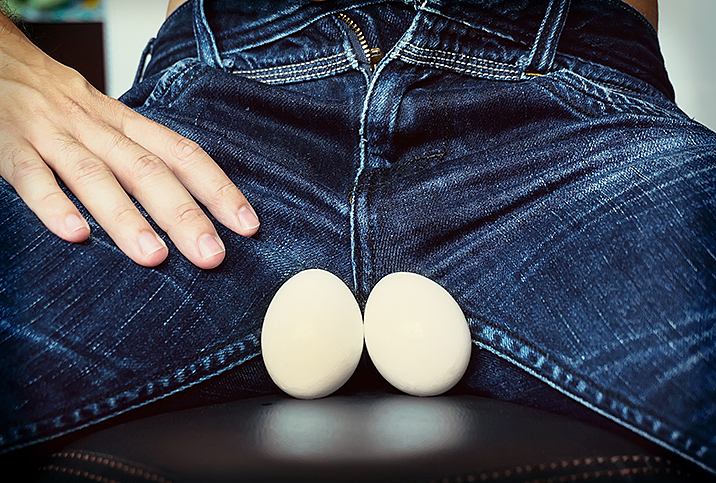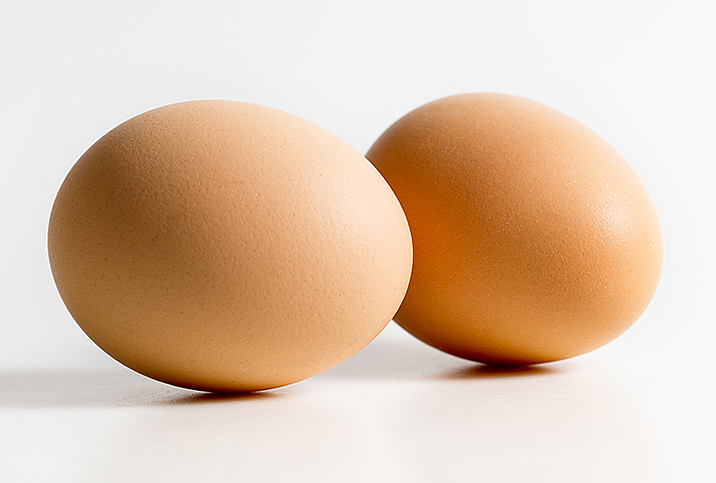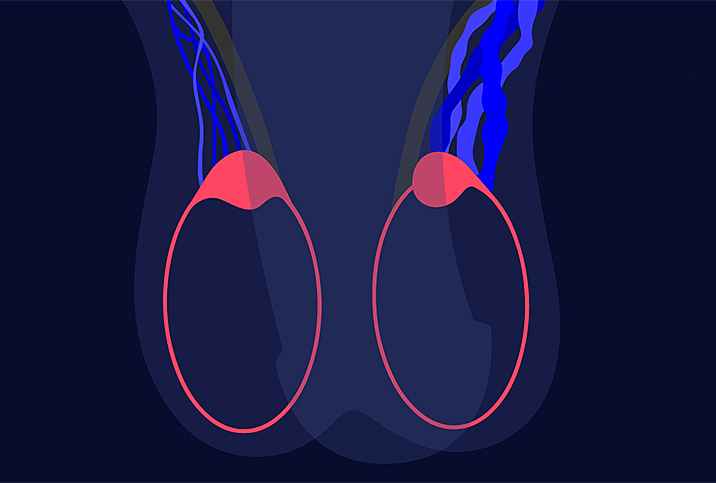7 Testicle Troubles That Should Send You to the Doctor

Every man likely knows that pain-plus-nausea combo of getting bumped in the balls all too well. Beyond the regrettable but temporary agony of catching the odd knee or football to the groin, some testicle issues should have you seeing your doctor sooner rather than later. Here, we discuss a few.
1. Your scrotum feels like a bag of worms
Varicoceles occur when veins in the scrotum become abnormally large or twisted. Much like varicose veins in the legs, scrotal veins can swell up and take on a "bag of worms" appearance and feel. Which is just about as fun as it sounds.
Sometimes varicoceles are painless, but they can also grow to be increasingly painful, especially after physical activity. And since varicoceles can affect fertility, you should consult your doctor if you see them forming.
2. Red and black discoloration
If you experience sharp, sudden testicular pain and notice severe discoloration, get to an emergency room. Testicular torsion is the likely culprit.
Testicular torsion is a dangerous condition that occurs when a testicle rotates and causes the spermatic cord, which brings blood to the scrotum, to become twisted. Blood flow is reduced or cut off entirely, causing pain and swelling. If testicular torsion is left untreated for as little as a few hours, it can lead to the death of the testicle, according to the Mayo Clinic.
Testicular torsion happens most frequently in adolescents ages 12 to 18, but it can occur at any age.
3. You feel a lump
This one probably goes without saying, but if you notice a lump or a hard spot on one of your testicles, don't hesitate to see a doctor.
Testicular cancer is one of the most survivable forms of the disease—a man's lifetime risk of dying from it is 1 in 5,000, according to the American Cancer Society—but detecting the condition early, before it spreads, is crucial.
4. Hot balls
No, stud, not that kind. We're talking high-temperature testicles.
A scrotum that feels hot to the touch is one possible symptom of epididymitis, inflammation of the coiled tube at the back of each testicle that stores and transports sperm. Other symptoms include a gradual increase of pain and swelling of the testicles and scrotum.
Epididymitis usually stems from an infection, frequently a sexually transmitted disease (STD) such as chlamydia or gonorrhea, so it's easily treatable with antibiotics. However, if epididymitis is left untreated, complications can lead to abscesses, testicle shrinkage, infertility, a fistula or abnormal passageway in the scrotum or even the death of testicular tissue.
5. 'Suddenly, a third testicle appeared, Doc...'
Yes, definitely see your doctor about this one. A new bulge in your scrotum, likely accompanied by discomfort or pain in your testicles, could be an inguinal hernia.
This condition occurs when tissue from the intestine pushes down through a weakened portion of the abdominal wall into your scrotum. Heavy lifting or just plain aging can cause the lower abdominal muscle to deteriorate and weaken.
Serious complications can include part of the hernia becoming trapped or strangulated outside the abdominal wall, cutting off blood flow. A strangulated hernia can be a life-threatening situation, according to the National Institutes of Health.
6. Persistent blood in your semen
If you notice blood in your semen that doesn't go away over time, it could indicate a serious problem. Trauma is the most obvious potential cause, but blood could also point to other issues, including infection, epididymitis or prostate problems, including prostate cancer.
7. Swelling
Swelling in one or both testicles can herald serious issues, including orchitis, infection, a hydrocele or even a tumor—all of which are reasons to see your doctor.
Don't drop the ball
As cliched as testicle pain is in terms of comedy material, however, the testicles are delicate organs that require extra care.
Take note of any pain or irregularity in your scrotum and testicles, and keep them out of the way of errant footballs, and you'll have a long, happy life together.


















